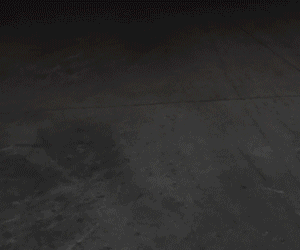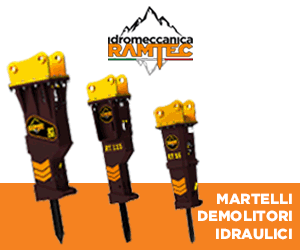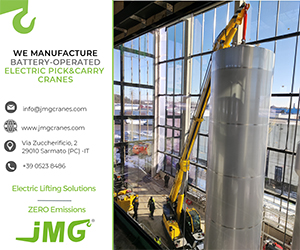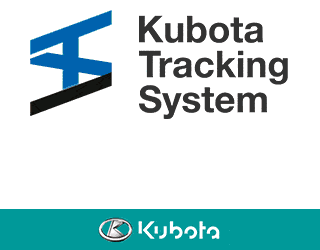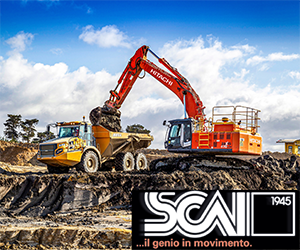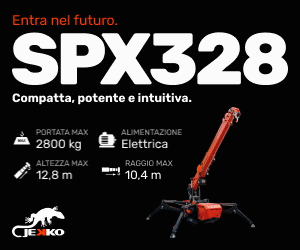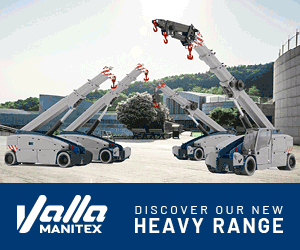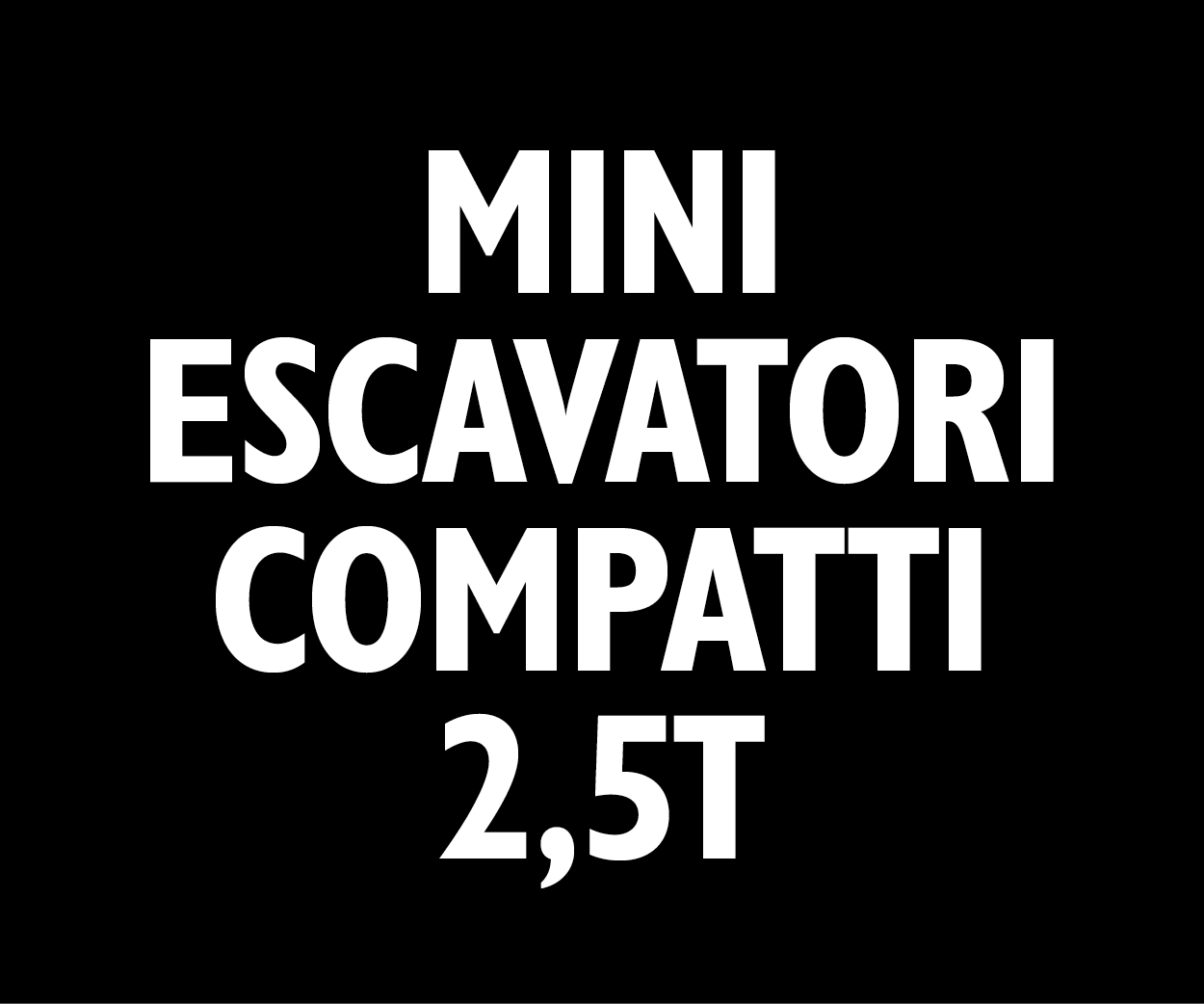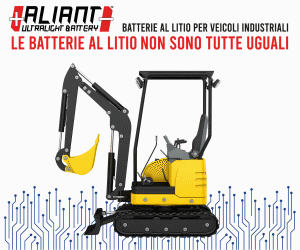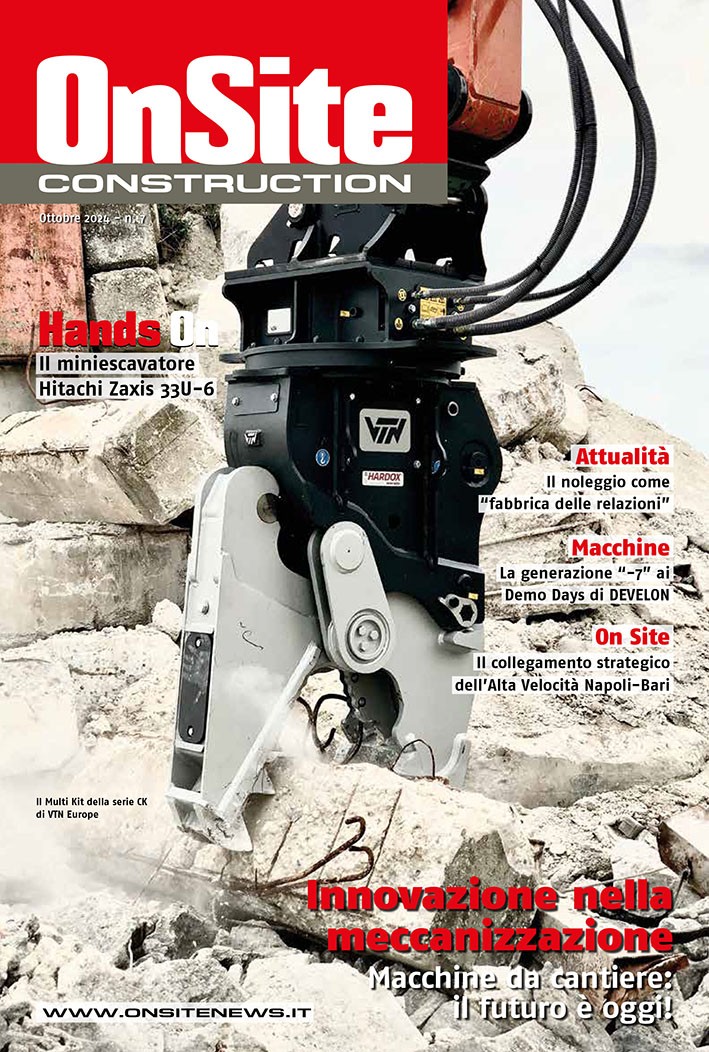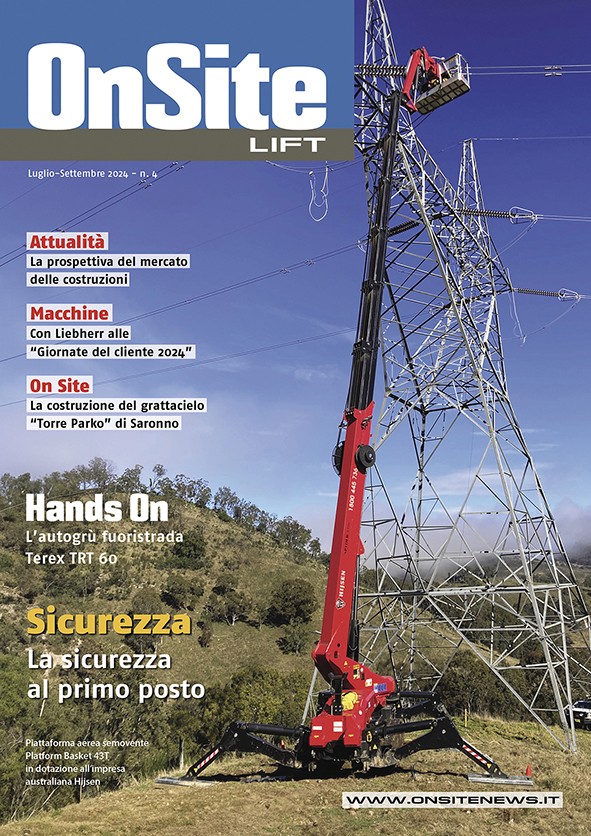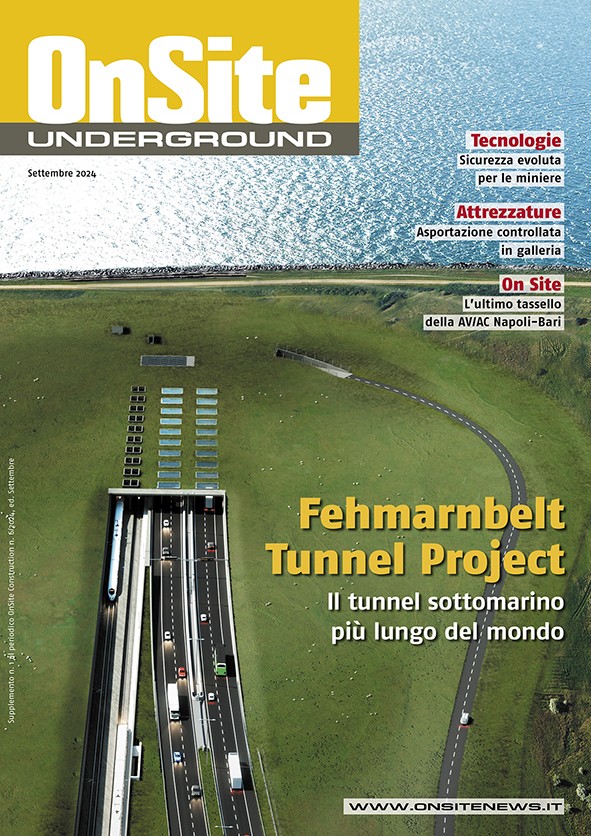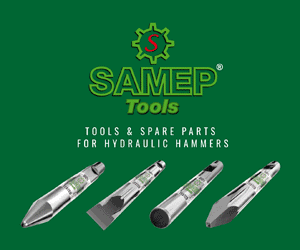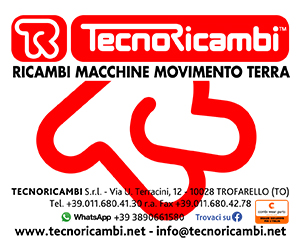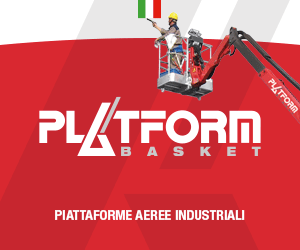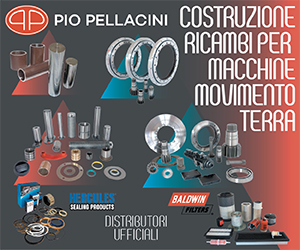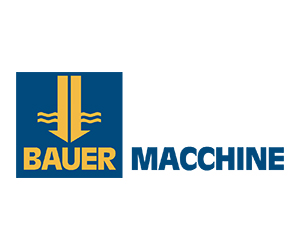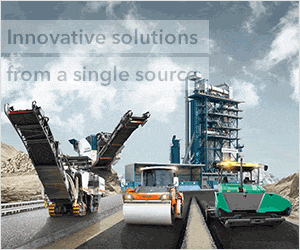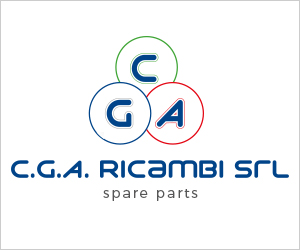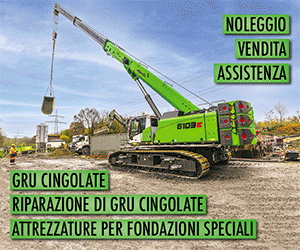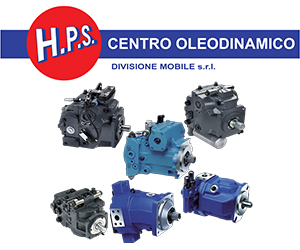Home \ International \ Hamm VC compactors save time and money
Hamm VC compactors save time and money
21/06/2021
Pubblicato da Redazione
Two H 25i VC compactors were used to streamline the construction process in Bad Fredeburg.
In Bad Fredeburg, located in the Sauerland region of the German uplands, two Hamm H 25i VC compactors with a special crusher drum were used to simultaneously crush slates and compact. This made it possible to build a 15-metre dam for a new bypass. The main reason for using the rollers is that VC compactors are designed to streamline the construction process, removing the need for a separate stone crusher, and reducing the amount of transport required. This results in a faster process with lower costs.
Michael Tillmann, from Kirchhundem in the West German upland region of Sauerland, first became aware of the H 25i VC at Bauma 2019. "We were immediately won over by the roller's design. But we never had the right project before," explains Straßen- und Tiefbau GmbH's construction manager. Not long after, there was a project to build a dam for a new bypass using locally available slate. "As soon as I saw the stone, I had a feeling that the Hamm compactor would be perfect for crushing this material," said Tillmann. And he was right. The stone in question was Fredeburg slate, also known as schisty greywacke. The material would normally have to be broken up on-site to a maximum particle size of 200 mm by several crushers, before being loaded onto trucks by excavators and transported to the dam site. Bulldozers would then be used to spread out the rock, then compactors would compress it into layers.
The team from Sauerland presented a simpler and more efficient alternative to this process – without a crusher and using much fewer transports – employing two H 25i VC compactors. A trial quickly showed that the VC compactors from Hamm provided the perfect fracture pattern for this application. The site manager was also pleased with the quality of the crushed slate and the compaction achieved for the dam layers. In collaboration with the soil surveyor, a height of 40 cm per layer was then determined. The optimum void content was determined to be 6%, with a permissible maximum of 10%. To ensure that the water content was also correct, each layer had to be sprayed with water. "After a few days, it was clear that we were working much faster than when using crushers. The main reason for this is working in layers," explains Michael Tillmann.
150 quick-change toolholders are welded onto the drum of the VC compactor. These holders can house different tools: Chisels or padfoot inserts. Equipped with chisels, which are also used in mining, the vibrating drum generates extremely high point loads of up 50 t which breaks up the stone. The ground is compacted at the same time. This allows the VC compactors to both crush the stone and relieve tension in the rock. When compacting cohesive soil, the drum can be equipped with special padfoot inserts. Hamm currently has two different chisels in its range for crushing rock and relieving tension: A classic chisel and a special mining chisel for hard rock applications. Their geometries together with the integral solid carbide tips are specially designed for materials with different compressive strengths.
The design of the quick-change toolholder is just what you would expect from Hamm, preventing contamination of the tools, and ensuring they are easy to change. Incidentally, the chisels are not destroyed during the changing process. They can be repeatedly used until they are worn out. When crushing the Bad Fredeburg slate, the chisel also exhibited an impressively low level of wear: "We only had to change a few chisels the whole time we were working," states machine operator Marvin Gallus.
On most comparable construction sites, the construction process consists of the following steps: Removal and loading, transport, feeding the crushers, crushing, loading, transport, spreading and compacting. With the VC compactor, this process is shortened. The steps remaining are removal and loading, transport to the construction site, spreading with bulldozers, breaking up and compacting with the VC compactor. This allows projects to be completed at a considerably lower cost. In Bad Fredeburg, there was about a 50% reduction in the costs for breaking up and compacting. This is because considerably fewer machines were needed. Straßen- und Tiefbau GmbH only required two VC compactors and a caterpillar vehicle. The two crushers, two baggers and two dumpers originally planned for crushing the slate were not required. Personnel and operating costs were also reduced accordingly. Another benefit was that, by using the VC compactors, the CO2 footprint also significantly decreased across the entire construction site.
When crushing rock, the machine components are being used more intensively than during the usual compaction. That is why Hamm has designed the VC machines as heavy-duty equipment. This means that, amongst others, the three-point articulation, underbody, front frame and drum suspension, including the drive, have been reinforced compared to normal compactors. In addition, all VC compactors are set on highly robust earth-moving tyres and operators benefit from a seat with an extra-high backrest. The VC compactor is also equipped as standard with the Hammtronic machine control system and the Hamm Compaction Meter.
Marvin Gallus and Mohamed Khalil were at the wheel of the two H 25i VC compactors in Bad Fredeburg. They were given detailed instruction on how to use the crusher-rollers by a service technician. "We found everything very clear and simple after this. The roller is easy to use," says Marvin Gallus. Both singled out its ease of operation and comfort for praise – specifically the quality of the seat and the amount of space available in the cab. The many details designed to make work more pleasant were also much appreciated. An example is the inclusion of 12-V sockets. "I used one of the two 12-V sockets for a mobile phone. It is really practical," says Mohamed Khalil. In summary, Michael Tillmann, Straßen- und Tiefbau GmbH's construction manager, says:
"By combining the process steps, we were able to handle approximately 4500 m³ per day. This is almost twice as much as set out in the original planning schedule."

Ultime notizie di Wirtgen Macchine
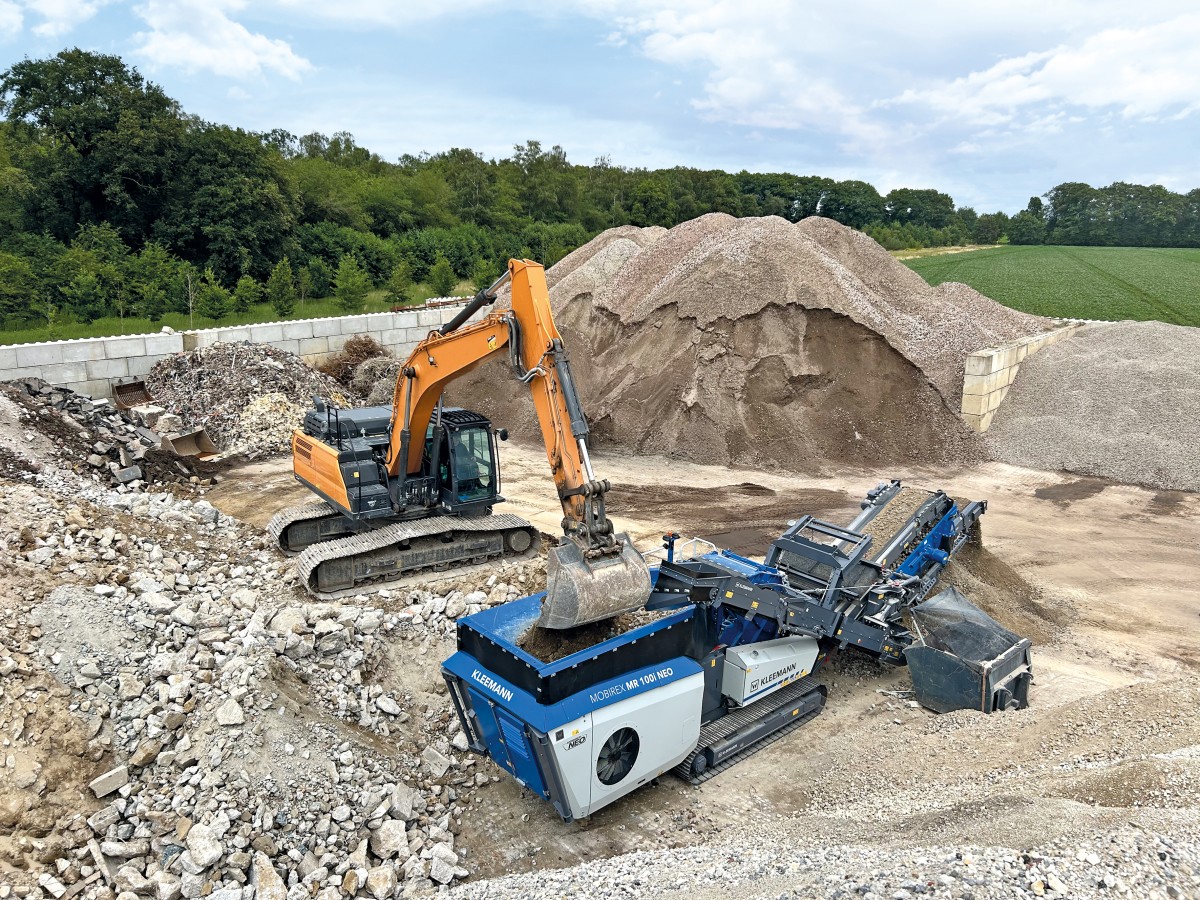
Earthmoving Machinery
21/11/2024
Kleemann: New compact crusher used for recycling
Impact crusher MOBIREX MR 100i NEO impresses during operatio...
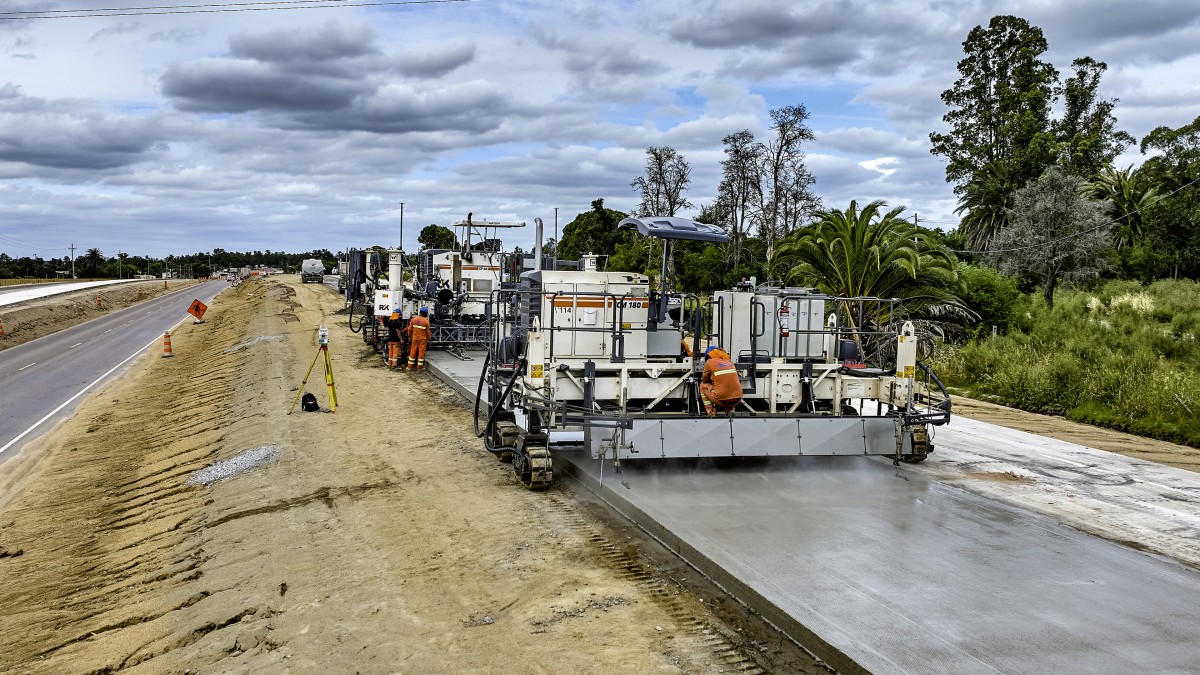
Road Machinery
04/11/2024
Wirtgen: Widening of the Ruta 5 highway from Montevideo to the Brazilian Border
Efficient concrete paving solutions from Wirtgen ensure the...
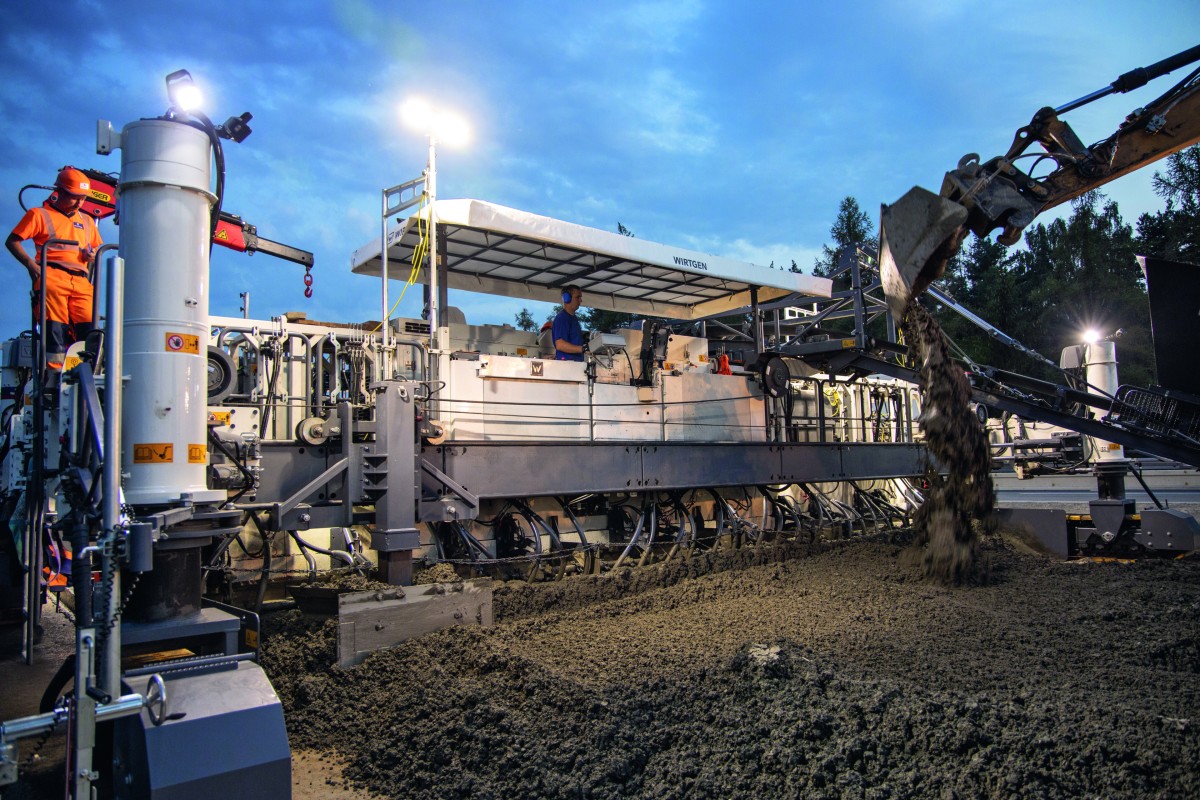
Road Machinery
31/10/2024
Wirtgen: Concrete paving with inset slipform pavers
Wirtgen has been offering machines for inset slipform paving...
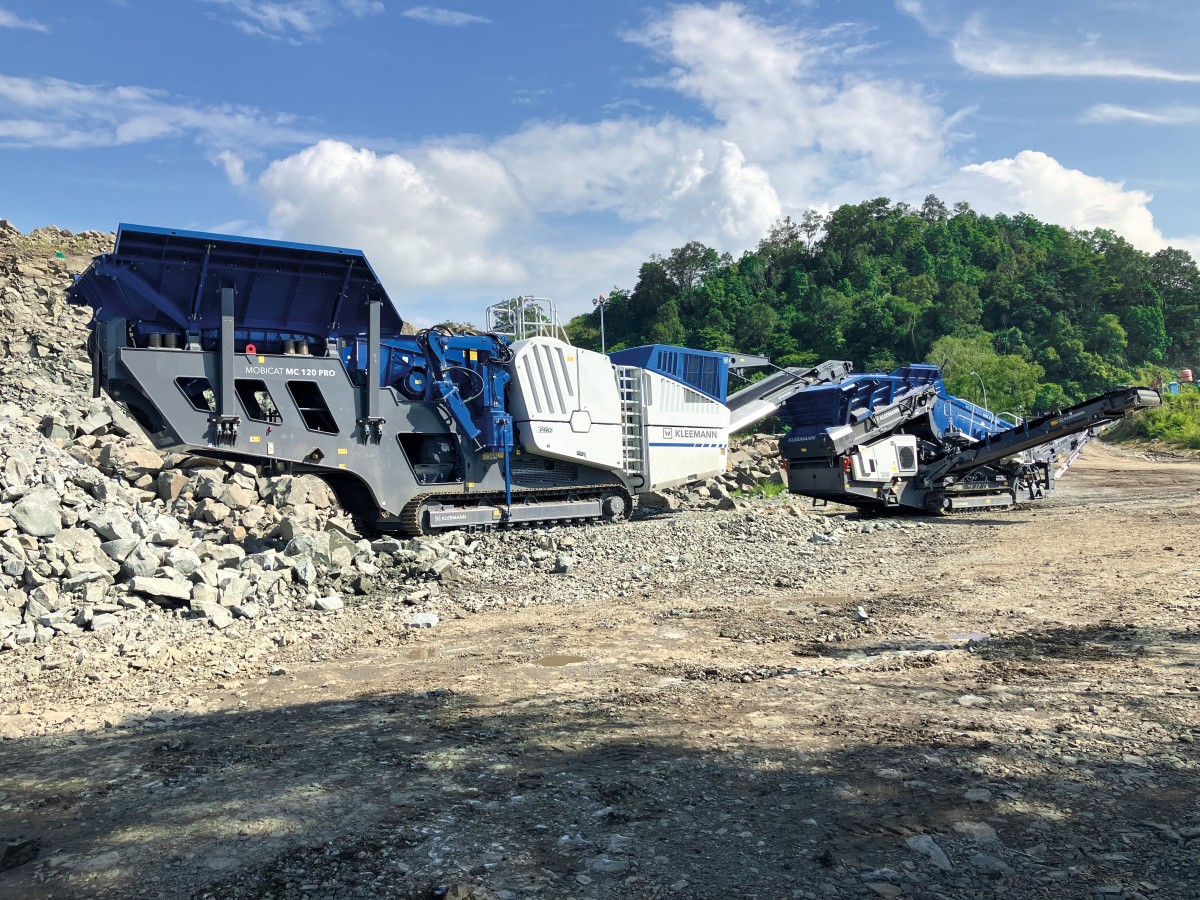
Earthmoving Machinery
28/10/2024
Kleemann: Andesite processing in Indonesia
A MOBICAT MC 120 PRO and a MOBISCREEN MSS 802 EVO are deploy...
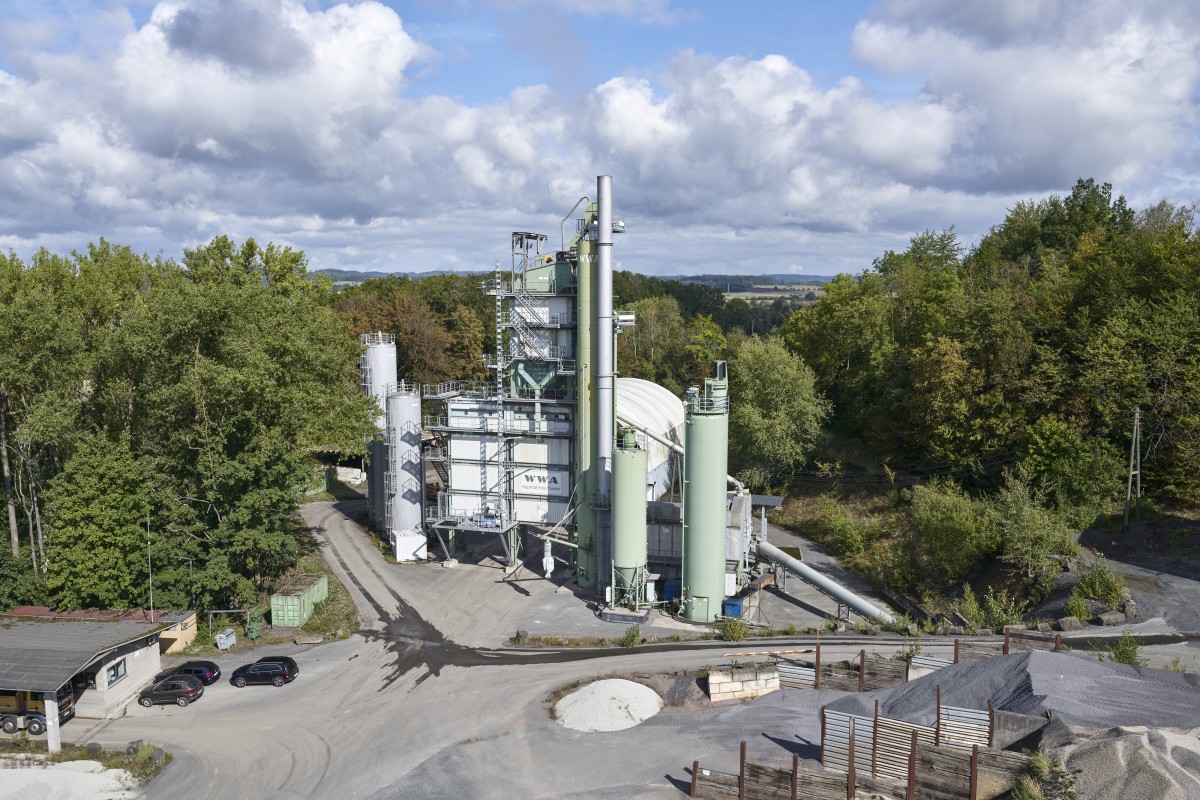
Earthmoving Machinery
24/10/2024
Benninghoven's REVOC system proven in practice
The REVOC Retrofit solution has been installed at an existin...
Road Machinery
01/10/2024
The Wirtgen Group at Paving Expo 2024
The Wirtgen Group presents groundbreaking technologies at Pa...
Altri International
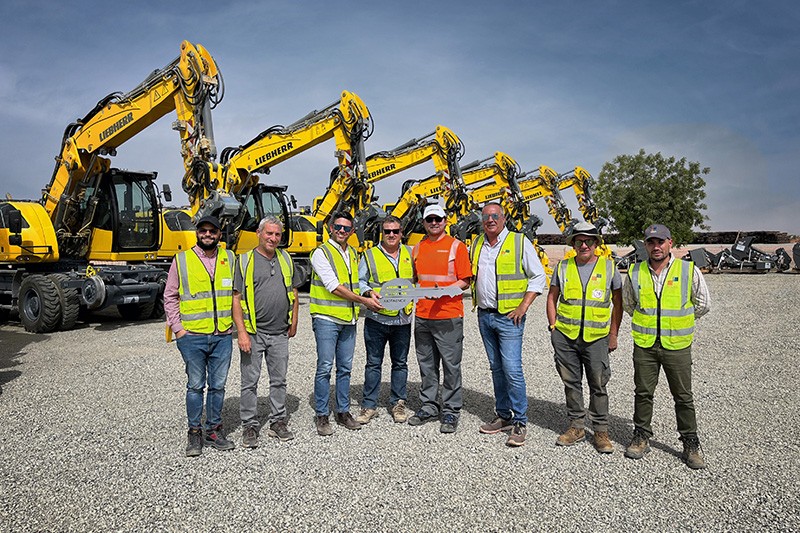
International
26/11/2024
Mota-Engil orders 10 Liebherr railroad excavators for a major project in West Africa
The Portuguese construction company Mota-Engil has once agai...
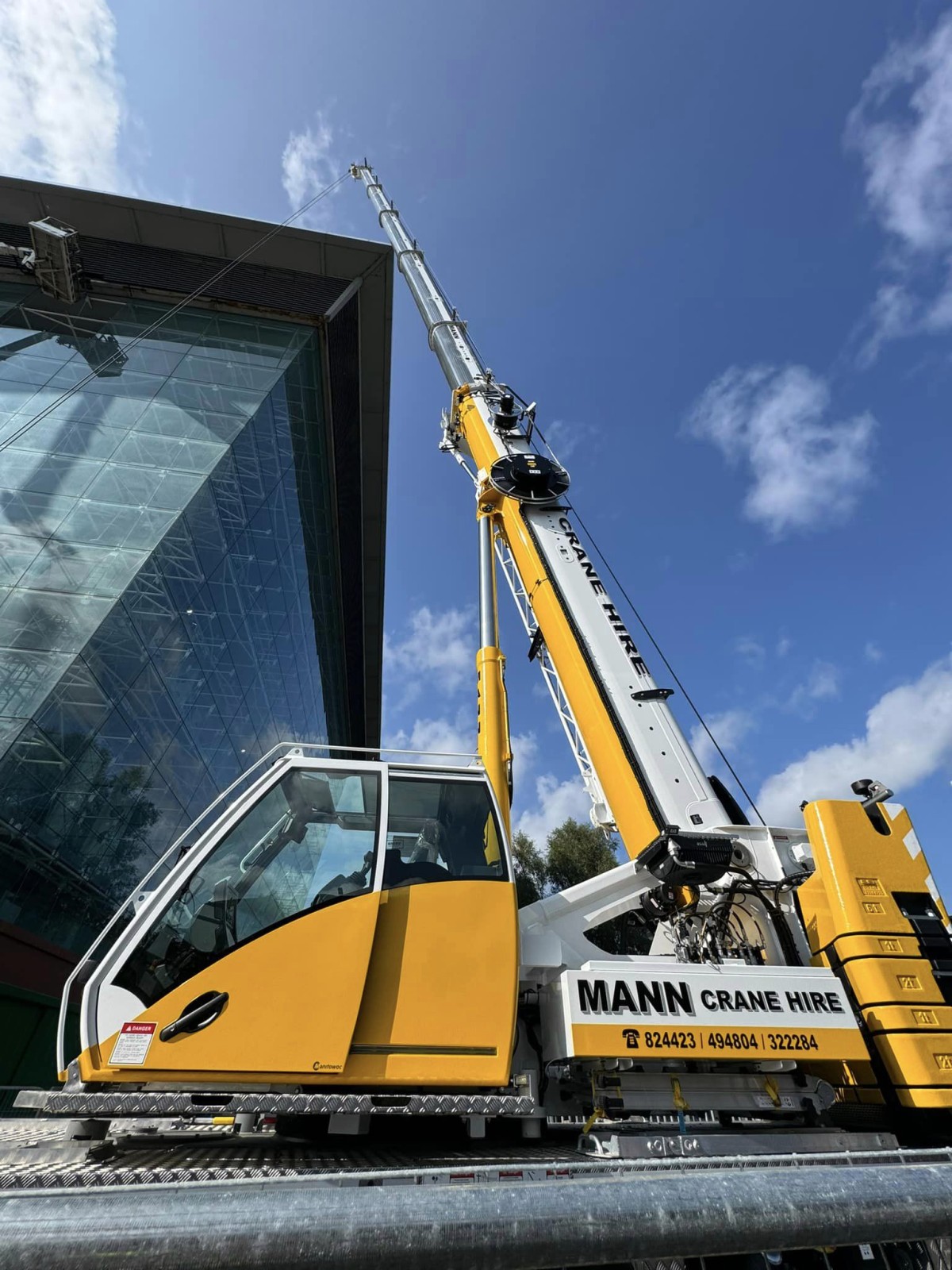
International
25/11/2024
New Grove GMK3060L-1 drives busy schedule for Mann Crane Hire
• Mann Crane Hire selected the GMK3060L-1 for its class-lead...
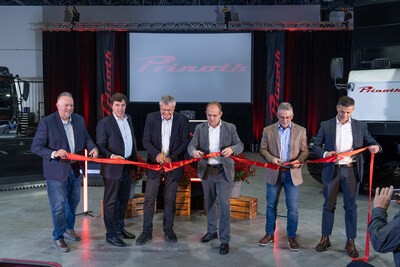
International
25/11/2024
Prinoth Unveils Expanded Production Facility in Granby, Canada
Prinoth held an event to announce the official opening of it...
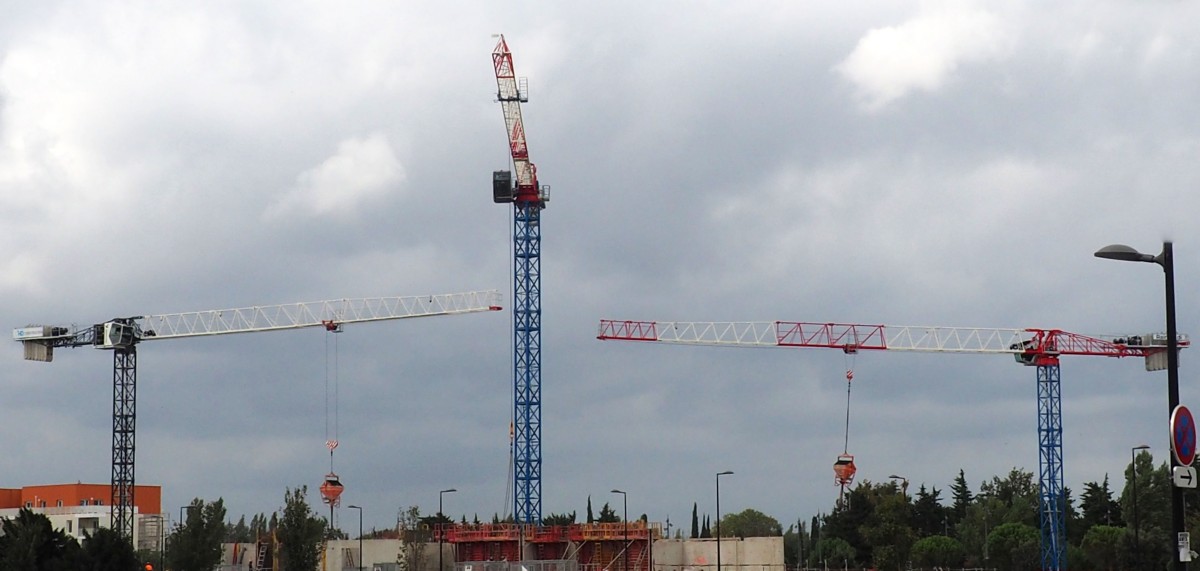
International
23/11/2024
GPMat International takes delivery of two Raimondi T147s residential development in the South of France
- Official agent of France expands its product lineup with t...
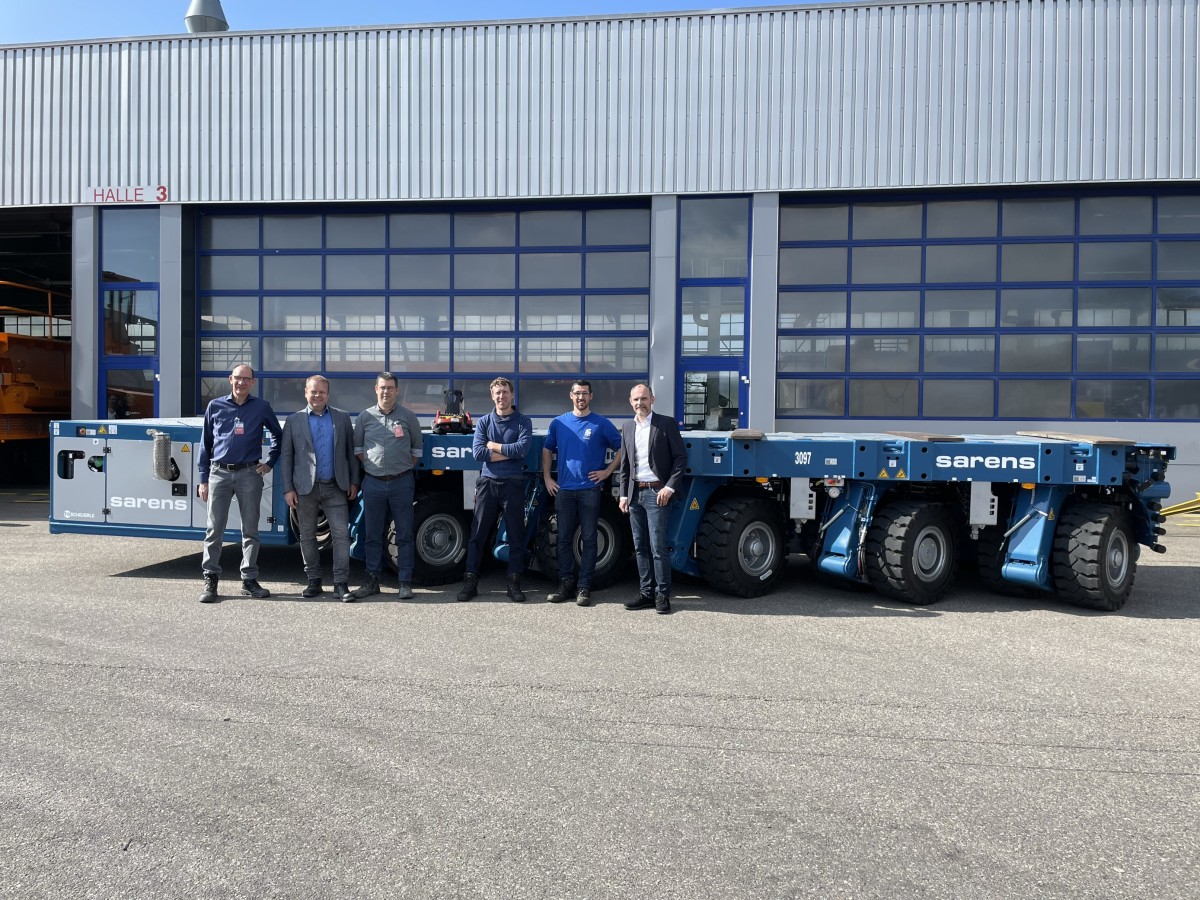
International
22/11/2024
Sarens acquires additional SCHEUERLE SPMT K24 modules
renowned for its expertise in crane rental services, heavy l...
International
22/11/2024
Five WOLFF cranes modernize Oslo’s Ulven district
With a total of five WOLFF cranes of type 7534.16 Clear, Wol...
















